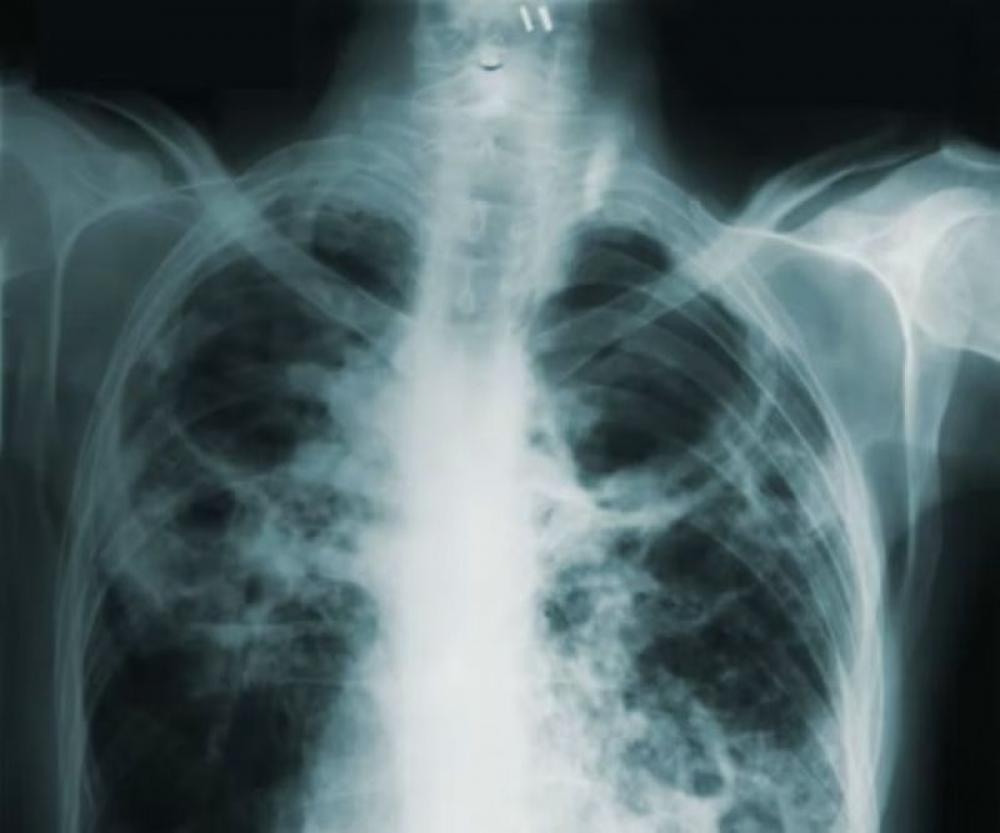Just Earth News | @justearthnews | 13 Nov 2025, 08:51 pm Print
 TB
TB Pulmonary tuberculosis. Photo: Unsplash
Tuberculosis (TB) remains one of the world’s deadliest infectious killers, claiming over 1.2 million lives and affecting an estimated 10.7 million people last year, according to the WHO Global Tuberculosis Report 2025, released recently.
Despite measurable progress in diagnosis, treatment and innovation, persistent challenges in funding and equitable access to care threaten to reverse hard-won gains in the global fight against TB, WHO said in a statement.
Dr Tedros Adhanom Ghebreyesus, WHO Director-General, said the large number of deaths caused due to the disease every year remains 'unconscionable'.
"Declines in the global burden of TB, and progress in testing, treatment, social protection and research are all welcome news after years of setbacks, but progress is not victory," said Dr Tedros Adhanom Ghebreyesus, WHO Director-General. "The fact that TB continues to claim over a million lives each year, despite being preventable and curable, is simply unconscionable. WHO is working with countries to build on the progress they have made and accelerate the path to ending TB by 2030.”
Between 2023 and 2024, the global rate of people falling ill with TB declined by nearly 2%, while deaths from TB fell by 3%. These reductions signal a continued recovery of essential health services following disruptions caused by the COVID-19 pandemic.
Some regions and countries show sustained progress, demonstrating that strong political commitment and investment address this ancient disease. Between 2015 and 2024, the WHO African Region achieved a 28% reduction in the TB incidence rate (number of people falling ill with TB per 100 000 population per year) and a 46% reduction in deaths. The European Region saw even greater declines, with a 39% drop in incidence and a 49% reduction in deaths.
During the same period, over 100 countries achieved at least a 20% reduction in TB incidence rates, and 65 countries achieved reductions of 35% or more in TB-related deaths. These countries have attained the first milestones of the WHO End TB Strategy.
However, ending TB globally will require accelerated progress in countries with the highest burden. In 2024, 87% of the global number of people who developed TB disease was concentrated in 30 countries.
Just eight of them accounted for 67% of the global total: India (25%), Indonesia (10%), the Philippines (6.8%), China (6.5%), Pakistan (6.3%), Nigeria (4.8%), the Democratic Republic of the Congo (3.9%) and Bangladesh (3.6%).
Timely treatment for TB has saved an estimated 83 million lives since 2000. Between 2023 and 2024, progress continued in TB diagnosis, prevention, and treatment, reflecting the impact of sustained efforts and innovation in countries.
Funding gaps endanger progress and research
Despite many gains, global progress levels remain far from meeting the End TB Strategy targets. A major obstacle is global funding for TB, which has stagnated since 2020. In 2024, only US$5.9 billion was available for prevention, diagnosis, and treatment--just over a quarter of the US$22 billion annual target set for 2027.
Cuts to international donor funding from 2025 onward pose a serious challenge.
Modelling studies have already warned that long-term cuts to international donor funding could result in up to 2 million additional deaths and 10 million people falling ill with TB between 2025 and 2035.
Global TB research funding also lags, reaching only US$1.2 billion in 2023 (24% of the target). As of August 2025, 63 diagnostic tests were in development and 29 drugs were in clinical trials--up from just 8 in 2015.
Additionally, 18 vaccine candidates are undergoing clinical trials, including 6 in Phase 3. WHO continues to lead global efforts to advance the TB vaccine agenda, supported by the TB Vaccine Accelerator Council launched by WHO Director-General.
“We are at a defining moment in the fight against TB,” said Dr Tereza Kasaeva, Director of the WHO Department for HIV, TB, Hepatitis and STIs. “Funding cuts and persistent drivers of the epidemic threaten to undo hard-won gains, but with political commitment, sustained investment, and global solidarity, we can turn the tide and end this ancient killer once and for all.”
WHO calls for sustained political commitment, increased domestic investment, and intensified research to accelerate progress.
- Malaria crisis looms as WHO reveals explosive rise in drug resistance
- Study shows nanoplastics from bottles are not just pollution—They may be harming you from within
- Are birth control pills affecting your mental health? New study raises red flags
- WHO declares obesity a chronic disease: Why experts are now recommending wider use of weight-loss drugs
- Global measles crisis: 30 million children miss vaccines as cases skyrocket!



-1763561110.jpg)


